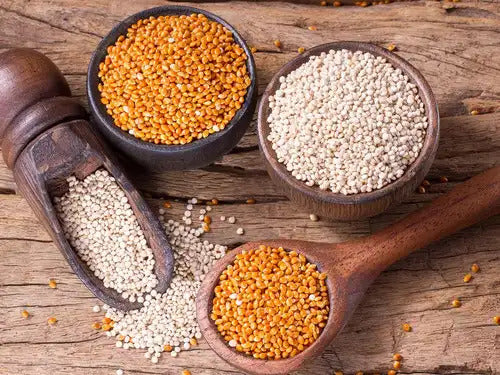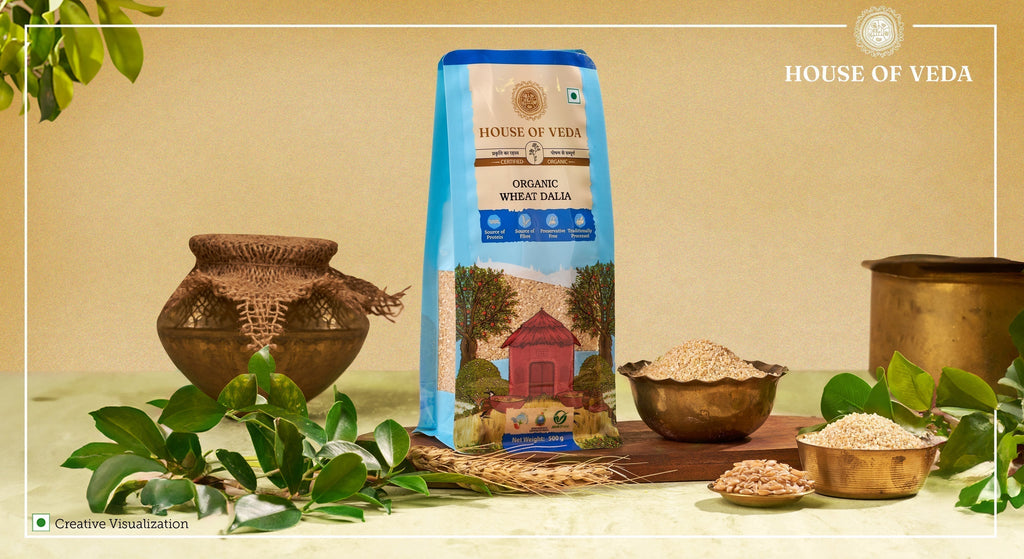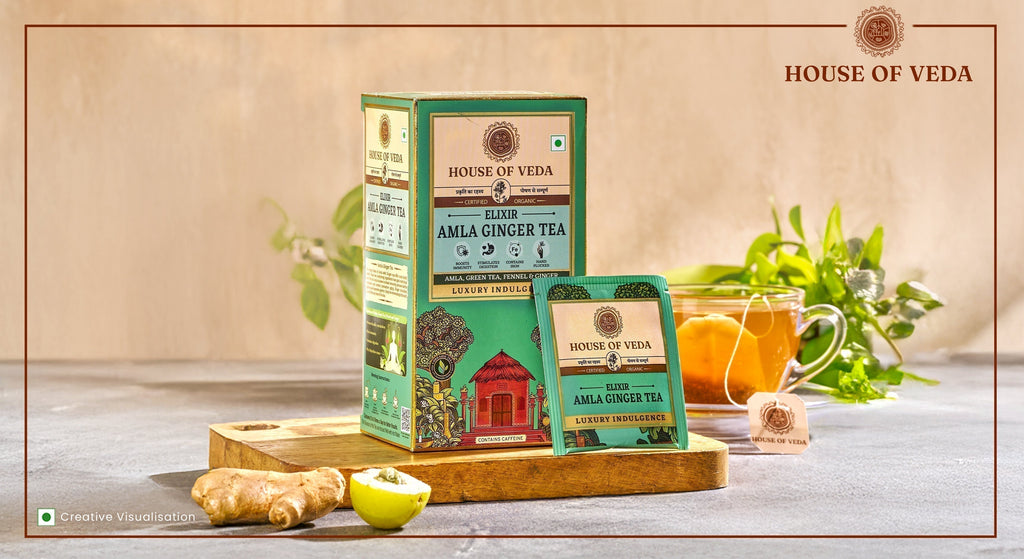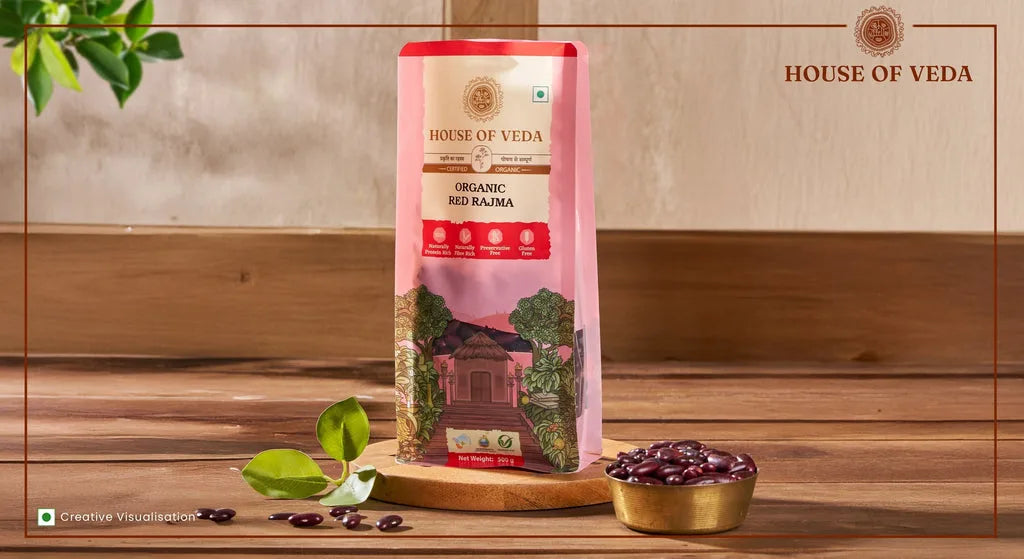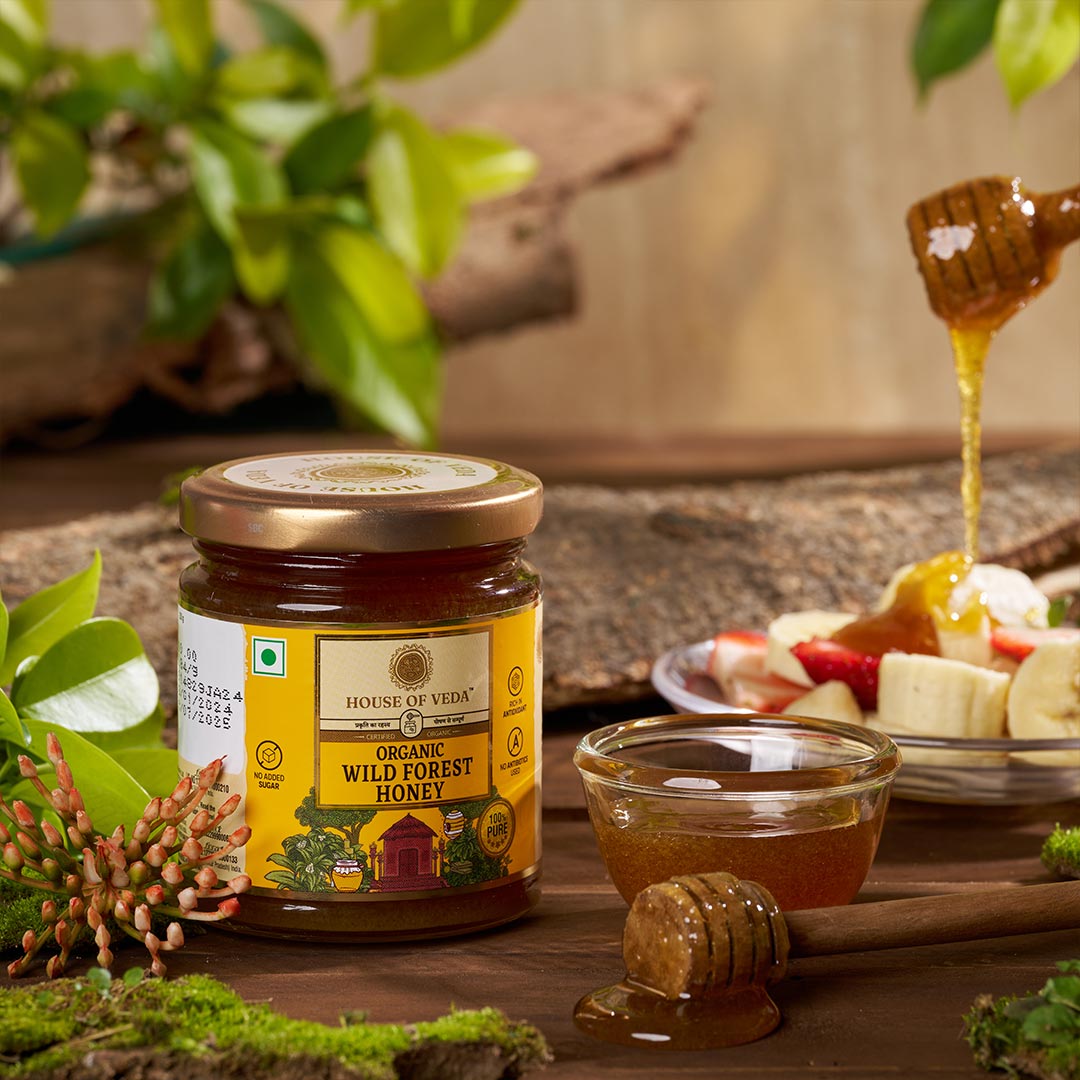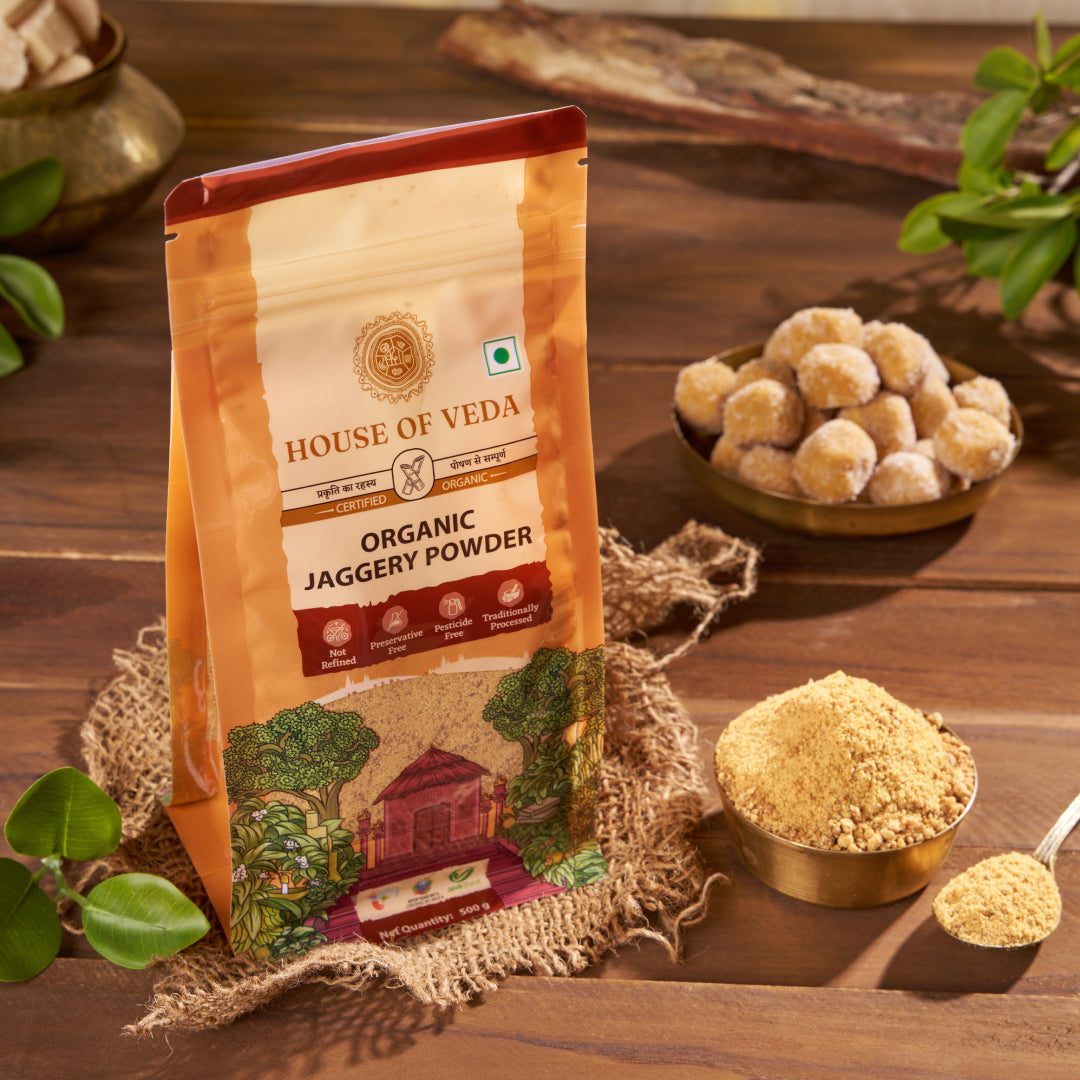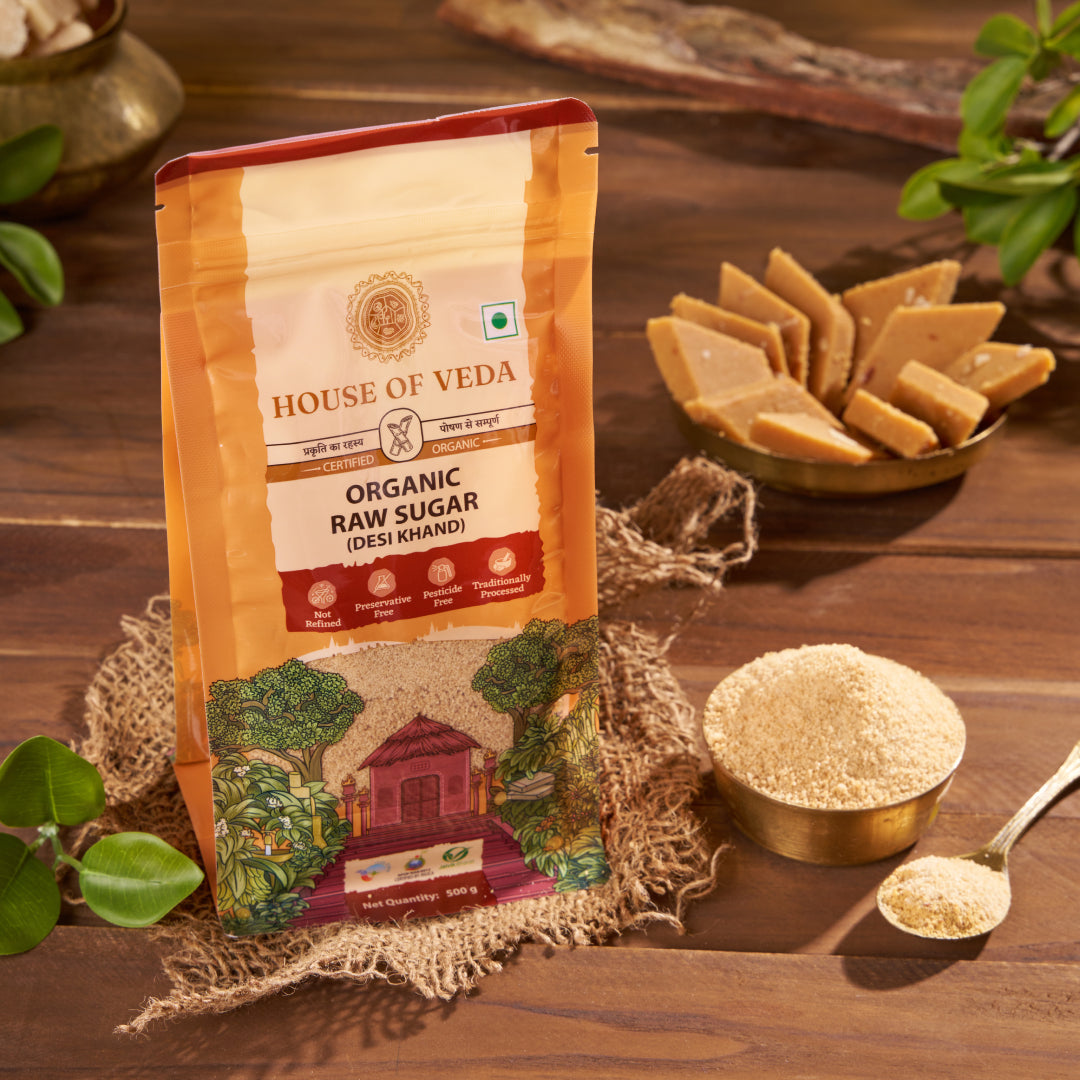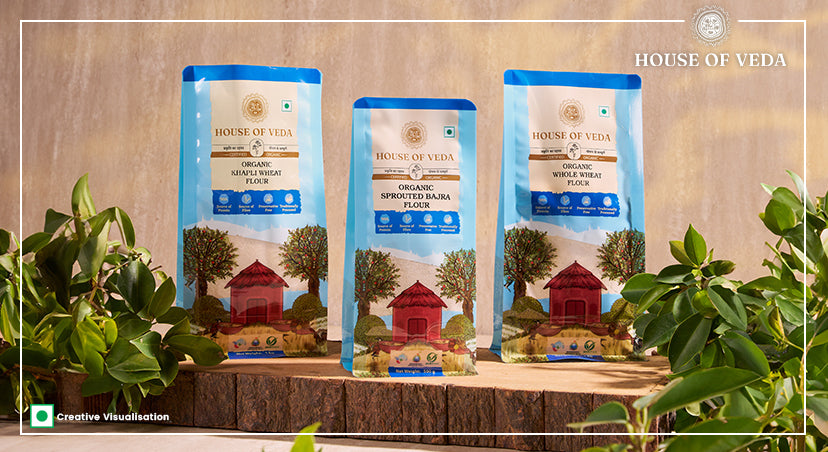
Organic Flour vs. Conventional Flour: Understanding the Differences

Have you ever wondered why some people insist on using organic flour over conventional flour? The differences between these two types of flour go beyond just the label. Let’s explore the key distinctions and understand why organic flour might be better for you and your family.
What is Organic Flour?
Organic flour is made from grains grown without synthetic pesticides, herbicides, or fertilizers. The farming practices used to grow these grains focus on maintaining soil health, using natural pest control methods, and promoting biodiversity. This results in a cleaner, more natural product, often nutrient-rich.
What is Conventional Flour?
Conventional flour is made from grains typically grown using conventional farming methods. These methods often involve synthetic chemicals to control pests and enhance growth. While these practices can increase yield, they can also leave chemical residues in the flour and harm the environment.
Key Differences Between Organic and Conventional Flour
Nutrient Content
Organic Flour: Organic flour tends to be richer in nutrients because the soil grown in is healthier and more fertile. The absence of synthetic chemicals also means that more natural vitamins and minerals are retained.
Conventional Flour: Conventional farming practices can deplete the soil of nutrients over time, resulting in flour that may be lower in essential vitamins and minerals. The use of chemicals can also affect the nutrient content.
Chemical Residues
Organic Flour: One of the main benefits of organic flour is that it is free from harmful chemical residues. This means you are consuming a product that is cleaner and safer.
Conventional Flour: Conventional flour can contain residues from the pesticides and fertilizers used during the growing process. These chemicals can have adverse health effects when consumed over time.
Environmental Impact
Organic Flour: Organic farming practices are designed to be sustainable and environmentally friendly. They promote soil health, conserve water, and reduce pollution. This makes organic flour a more eco-friendly choice.
Conventional Flour: Conventional farming can have a significant environmental impact. Synthetic chemicals can pollute water sources, degrade soil quality, and harm local ecosystems.
Taste and Quality
Organic Flour: Many people find that organic flour has a better taste and texture. This is because organic grains are allowed to grow naturally, without the interference of chemicals that can alter their natural qualities.
Conventional Flour: While still versatile and useful, conventional flour may not have the same depth of flavor and quality as organic flour due to the chemical treatments it undergoes.
Health Benefits of Organic Flour
Rich in Nutrients
Organic flour is typically richer in essential nutrients such as iron, magnesium, and B vitamins. These nutrients are crucial for maintaining energy levels, supporting immune health, and promoting overall well-being.
Free from Harmful Chemicals
Consuming organic flour reduces your exposure to harmful pesticides and synthetic fertilizers. This can help decrease the risk of health issues related to these chemicals, such as allergies, hormonal disruptions, and even certain cancers.
Better Digestion
Many people find that organic flour is easier to digest. This could be due to the absence of chemicals that can irritate the digestive system. Organic flours, especially those made from whole grains, also contain more fiber, aiding digestion.
Types of Organic Flours from House of Veda
House of Veda offers a variety of high-quality organic flours that cater to different culinary needs. Here are some of their top products:
Organic Sprouted Ragi Flour
Sprouted ragi flour is packed with nutrients and is an excellent choice for making healthy breads, porridges, and more. Sprouting the grains increases their nutritional value and makes them easier to digest.
Organic Whole Wheat Flour
Whole wheat flour retains all parts of the grain, providing a rich source of fiber and nutrients. It's perfect for making wholesome bread, chapatis, and other baked goods.
Organic Khapli Wheat Flour
Khapli wheat, or Emmer wheat, is an ancient grain with a rich nutritional profile. It's ideal for those looking to explore traditional and healthier grain options.
Organic Suji (Semolina)
Organic suji is coarsely ground wheat, commonly used in Indian cuisine for dishes like upma and halwa. It’s a versatile ingredient that adds texture and nutrition to your meals.
Organic Sprouted Moong Flour
Sprouted moong flour is made from sprouted green gram, enhancing its nutritional content. It's excellent for making healthy snacks and meals.
Organic Wheat Dalia
Organic wheat dalia is cracked wheat that’s perfect for making nutritious porridges and pilafs. It’s a healthy, whole-grain option that’s easy to cook and versatile.
Organic Sprouted Bajra Flour
Sprouted bajra flour is made from sprouted pearl millet, a gluten-free grain. It's ideal for those with gluten sensitivities and provides a nutrient-dense alternative to wheat flour.
Organic Gram Flour
Organic gram flour, besan, is made from ground chickpeas. It's a staple in Indian cooking and is used to make various dishes, from savory snacks to sweets.
Organic Multigrain Flour
Organic multigrain flour combines several grains, providing a diverse range of nutrients. It's perfect for making nutritious and flavorful breads and baked goods.
Conclusion
Choosing organic flour over conventional flour is a smart decision for both your health and the environment. Organic flour is nutrient-rich, free from harmful chemicals, and supports sustainable farming practices. House of Veda offers a range of high-quality organic flours that cater to various culinary needs. Switch to organic flour today and enjoy its numerous benefits to your kitchen and health.
FAQs
How does organic flour benefit my health?
Organic flour is free from harmful chemicals and richer in essential nutrients, supporting overall health and well-being.
What makes organic flour more environmentally friendly?
Organic farming practices promote soil health, conserve water, and reduce pollution, making organic flour a more eco-friendly choice.
Can I use organic flour in all my baking recipes?
Yes, organic flour can be used as a direct substitute for regular flour in any recipe, whether you're baking bread, making pastries, or cooking other dishes.
Does organic flour taste different from regular flour?
Many people find that organic flour has a better taste and texture, thanks to the absence of chemical residues and the preservation of the flour’s natural qualities.
Why should I switch to organic flour?
Switching to organic flour provides health benefits from higher nutrient content and avoids exposure to harmful chemicals, while also supporting sustainable and environmentally friendly farming practices.


